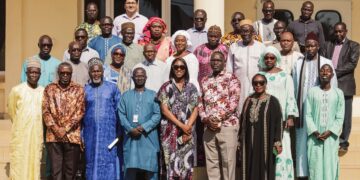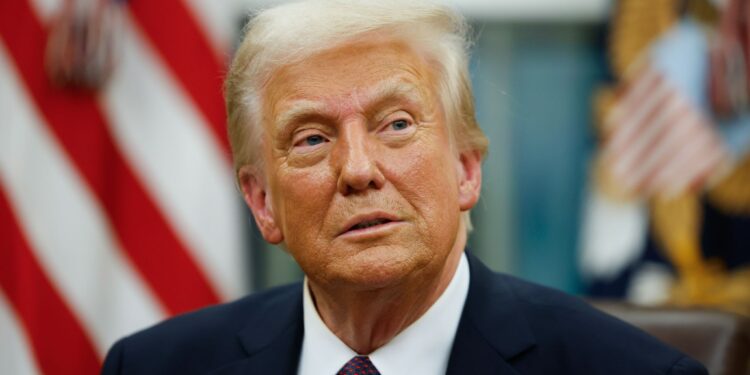U.S. President Donald Trump has signed a sweeping executive order that could drastically change how the United States funds research grants and foreign aid – a move likely to have far-reaching consequences for African researchers and institutions.
The order, Improving Oversight of Federal Grantmaking, signed on 7 August 2025, gives political appointees the final say over all U.S. government research funding, introduces strict content restrictions, and allows grants to be cancelled at any time if deemed no longer in the “national interest”.
Key Changes
Political Approval: All new grant announcements and awards must be signed off by Trump-appointed officials.
Restrictions on Content: Funding is barred for projects involving racial equality, gender studies, immigration support, or work considered “anti-American”.
Easy Cancellation: Agencies can now terminate grants “for convenience” at any time.
Funding Priorities: Preference will go to low-cost organisations and those that have received fewer U.S. grants in the past.
Impact on African Research
For decades, African researchers have benefited from U.S. federal funding through agencies such as the National Institutes of Health (NIH), the National Science Foundation (NSF), and USAID. These grants have supported critical work in:
Health research on malaria, HIV, and maternal health.
Climate and agricultural studies.
Social science projects.
Training and capacity-building for universities.
The new rules could slow or block funding for projects that primarily benefit African communities. Programmes aimed at addressing inequality, improving health outcomes in poor areas, or studying migration patterns may be especially vulnerable.
The executive order’s emphasis on “Gold Standard Science” could also disadvantage African institutions lacking high-end research infrastructure or advanced data management systems, creating a two-tiered global research landscape.
Risks to Ongoing Projects
Multi-year studies face the possibility of sudden funding cuts, threatening project continuity, discouraging other potential funders, and undermining long-term research planning.
Critics warn that political oversight could stifle academic freedom, replacing expert-led grant reviews with ideologically driven decisions. Research on sensitive topics such as colonial history, systemic inequality, and health disparities could be curtailed.
Economic and Capacity Concerns
U.S. grants have helped strengthen African universities and prevent brain drain. Reduced access could push more African scholars abroad, eroding decades of investment in local research capability.
While smaller, less-funded institutions may gain opportunities under the “spread funding wider” rule, established African research hubs could lose the steady partnerships they have built with U.S. institutions.
Possible Silver Linings
Some provisions could work in Africa’s favour:
Simpler, plain-language grant calls could help applicants with limited grant-writing resources.
A push for more measurable results may reward community-based projects.
The Way Forward
Experts suggest African institutions diversify funding sources, strengthen regional collaboration, and adapt administrative systems to meet stricter reporting demands. Alternative opportunities may lie in European Union programmes, Chinese partnerships, private foundations, and South–South cooperation.
The global scientific community is urged to defend merit-based funding and closely monitor the effects of the U.S. changes. The stakes are high: from health emergencies to climate crises, politically neutral research remains vital for solving shared global challenges.
Source: AllAfrica.



















































































 EduTimes Africa, a product of Education Times Africa, is a magazine publication that aims to lend its support to close the yawning gap in Africa's educational development.
EduTimes Africa, a product of Education Times Africa, is a magazine publication that aims to lend its support to close the yawning gap in Africa's educational development.